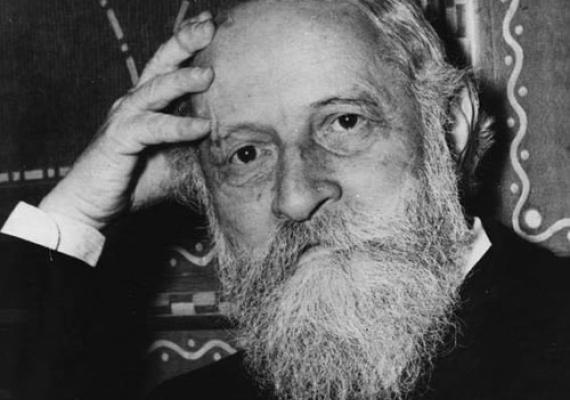I, Thou, and the Election

Is Martin Buber relevant to the 2016 American elections?
Could he be relevant in a way that doesn’t reduce to scolding individuals for their impoverished spiritual stances, to “can’t we all just get along?”
Or could he be relevant in a way that doesn’t simply amount to bemoaning social media, as if epistemic sorting is a novel aberration of recent technology, and in the golden olden days everyone used to sit around the same newspaper and the same 3 broadcast channels and have reasonable arguments about commonly-agreed-upon sets of facts?
One problem with using Buber’s I and Thou to talk about contemporary politics is that it seems to reduce complex processes to the simplest of ethical demands. In this way of thinking, Buber offers us an existential elaboration of Kant’s categorical imperative: act always in such a way that you could be open to the uniqueness of the other, encountering the other with your whole being, and avoid treating the other as an instrument for the accomplishment of your purposes.
Well, that’s very nice! But it doesn’t tell me how to vote. More than that, it doesn’t tell me how to relate to others in an open, generous, whole-being sort of way even when I perceive them as dehumanizing me—treating me and others like me as less than human. Just as we bristle at a municipal law that equally forbids the rich and the poor from sleeping under a bridge, it seems ludicrous to put forward a moral injunction that equally forbids open white supremacists and ordinary liberals from “distrusting” each other. Part of the sense of alarm and emergency surrounding these elections stems from the fact that Trump has brazenly and unashamedly dehumanized so many individuals and groups: calling undocumented Mexican immigrants rapists, mocking the disabled, grouping all African-Americans together as though they only lived in “high-crime areas,” looking the other way or dog-whistling as a significant sector among his supporters openly deploys violent antisemitic rhetoric, calling for a ban on all Muslims entering the country, bragging about sexually assaulting women and otherwise treating them as objects, etc. etc. etc. Attempts to be exhaustive in cataloguing these things must necessarily fail.
And so, the problem we face is not simply that a man many consider unfit to be President may hold the executive office and have access to the nuclear codes, as terrifying as that is. The problem is that we do face a polemical situation characterized by distrust and even hatred of huge portions of the population—and this is a situation that will continue after the election, no matter who wins. One can understand the temptation to turn to Buber’s thoughts on human relation per se as an antidote to all that, but this runs the risk, as Martin Kavka has written, of being little more than a “coping mechanism.” Whiskey could serve just as well.
Fortunately, Buber had a lot more to say about politics than one might guess from I and Thou. Over the course of the four decades he lived following the publication of that work, he wrote essays on the politics of Germany and Palestine, as well as books that were ostensibly about the Bible and ancient Israel but were manifestly also about the contemporary world. In these works, Buber offers a fascinating picture of a thinker animated by apparently absurdly idealistic principles, constantly engaged in the mundane work of attempting to apply those principles to the most recalcitrant realities, as well as in higher-order reflection upon the process of that application itself.
An example can be seen in the essay “Instead of Polemics,” published in the November 1956 issue of Ner, a forum for those who had been members of the bi-nationalist Ichud group prior to the formation of the State of Israel, and who carried that flame (Ner means “candle”) forward into the 50s and 60s. Buber describes the typically estranged camps of politicians and men of action, on the one hand, and principled idealists, on the other, eyeing each other warily across a gulf of misunderstanding. Against these, Buber avers that “all true human responsibility is dual: directed towards heaven and towards the earth.” The issue is how to combine these duties. Here, Buber argues against those who “appear in public as innocent men before sinners.” This is not just a matter of being morally right, but of being politically effective—those who desire both “do not propose purely principled behavior to the people, and they do not demand that the people obey pure principles. They wish to repair what can be repaired under the given circumstances, and no less than that.”
Buber was talking, then, about the Palestinian refugee problem, arguing against a mentality (still present today) that treated this problem as all-or-nothing, a position that always ended up erring on the side of nothing. But this is not so far removed from his advocacy, elsewhere, of “socialism from below,” or his pre-state advocacy of bi-nationalist Zionism. In contrast to the apocalyptic notes he had struck in I and Thou, imagining a moment of divine destruction coming ever closer, in his later work the note he strikes is prophetic. The call is to turn, as much as one can; to do justice, as much as one can; to struggle, as much as one must. These things are within, and not beyond, human power.
So, in the context of the election, I would say this: it seems very well the case that “both sides” are guilty of some level of de-humanization of the other side. But recognizing this does not mean that the only properly deep, spiritual attitude is to pronounce a plague on all our houses. We do not have to appear as innocent people before sinners—Lord knows I’ve listened to my share of conversations in which liberals treated Trump supporters as bizarre anthropological specimens to be dissected, rather in the way that British imperialists treated natives, and I’ve spoken up against this when I saw an opportunity. But fairness does not require treating this as on the same level as Tweets depicting my friends and colleagues being shoved by Trump into gas chambers. Or claiming that he will only respect the results of the election as legitimate if he wins.
Buber lived for five years under the Nazis before escaping to Palestine in 1938, really the last possible moment before Kristallnacht and the war. In 1942, he reflected upon the politics of authoritarianism and fascism in an essay called “People and Leader.” A number of lines in this essay have been haunting me. Writing of Mussolini’s proud proclamation that he had created a new myth of Italy, Buber writes: “But he obviously knows his masses. They are masses who have despaired of a truth worthy of belief, because the previous war and what followed it have not only dashed to pieces the current truths but have also driven out the belief in truth in general, the objective trust.” In the absence of truth, having no path to follow, one—follows the leader.
But surely the leader himself has a path? Well, sometimes. Buber avoids falling into the easy trap of conflating fascist and Bolshevist totalitarianism: “the latter arises from the tradition of a real idea and in vital relationship to it…whereas fascism in contrast, basically acknowledges nothing but ‘the firm will to retain power.’” This type of leader is flagrantly non-ideological, believing only in himself. “The leader alone knows the goal, but there is no goal. The leader embodies the idea, but there is no idea…Nietzsche did not foresee that his idea of the ‘becoming God’ would be taken possession of not by the type he called the ‘higher man,’ but by the lower man who is, to be sure, without restraint, but at times is probably assailed by doubts in his innermost being, and must strive, therefore, to be worshipped in order basically to believe in himself.”
If these themes strike a resonant chord to you, then you know that you cannot turn now, the week before the election, to a disembodied spiritual hope or the simple name of Trust. The rebuilding of human relationships at all levels of society is necessary, but some candidates and institutions place greater blocks in its way than others do. And yes, as Kavka said correctly—that means putting down our books, not only voting but organizing, not only tending our gardens, but getting into the streets.
Related post: Martin Kavka's "Brooks, Buber, and the Ballot Box"
